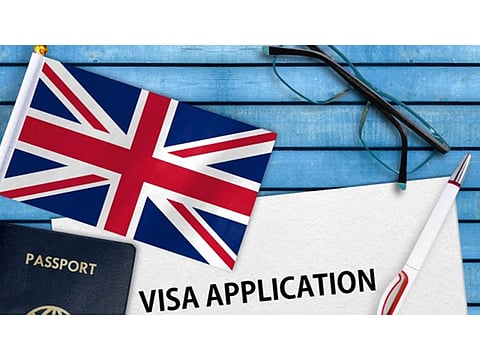UK immigration shakeup: What longer waits, higher costs mean for UAE expats
UAE professionals eyeing Britain face higher costs and tighter checks under new rules

Dubai: The UK is overhauling its immigration system, making life for future migrants more costly and more closely monitored. For UAE expats planning to move, the road to settlement is about to get tougher.
Rising visa expenses
Moving to Britain has always been expensive, but costs are now among the highest in the world. According to the Financial Times, a family of four on a skilled worker visa faces £42,892 (Dh192,000) in expenses over five years. If employer-covered fees are taxed as benefits, the bill climbs to £72,639 (Dh325,000) — nearly matching the $100,000 levy proposed in the US.
The charges include visa applications, the annual NHS surcharge of £1,035 per person, and the eventual application for permanent residency. While large corporates often shoulder part of the cost, smaller firms and universities struggle. For UAE expats, that makes negotiating relocation packages more important than ever.
Stricter residency rules
For many, the long-term goal when moving to the UK is Indefinite Leave to Remain (ILR), which currently requires five years of continuous residence. Citizenship usually follows a year later.
The Labour government wants to double the wait to 10 years, with tougher English-language rules and an “earned contribution” model that could reward those in priority sectors.
Reform UK, led by Nigel Farage, has gone further — calling for ILR to be scrapped entirely and replaced with repeated five-year visa renewals. Prime Minister Keir Starmer yesterday warned it could even affect those already lawfully settled.
Digital ID cards soon?
Additionally, a new digital ID card system is also on the way. Announced this week, the card will be stored on mobile phones, similar to the NHS app. It will replace multiple documents — from utility bills to national insurance numbers — and become mandatory for applying for jobs, renting homes, or accessing public services.
Supporters argue digital IDs will streamline processes and cut fraud. Critics warn they could give the government too much monitoring power. For UAE expats moving to the UK, daily life — from renting a home to starting a job — will increasingly rely on digital verification.
Key takeaways for UAE expats
Higher costs: Budget carefully and negotiate support with employers.
Digital checks: Expect a more tech-driven system to prove your status daily.
Tougher settlement rules: Apply sooner under current terms if you plan to stay long-term.
Bottom line? The UK remains a top destination for work and study, but the rules are tightening. For UAE expats, expect higher costs, longer waits, and closer monitoring. Acting early — and seeking advice — could make all the difference in securing long-term status before the changes take hold.
Sign up for the Daily Briefing
Get the latest news and updates straight to your inbox


